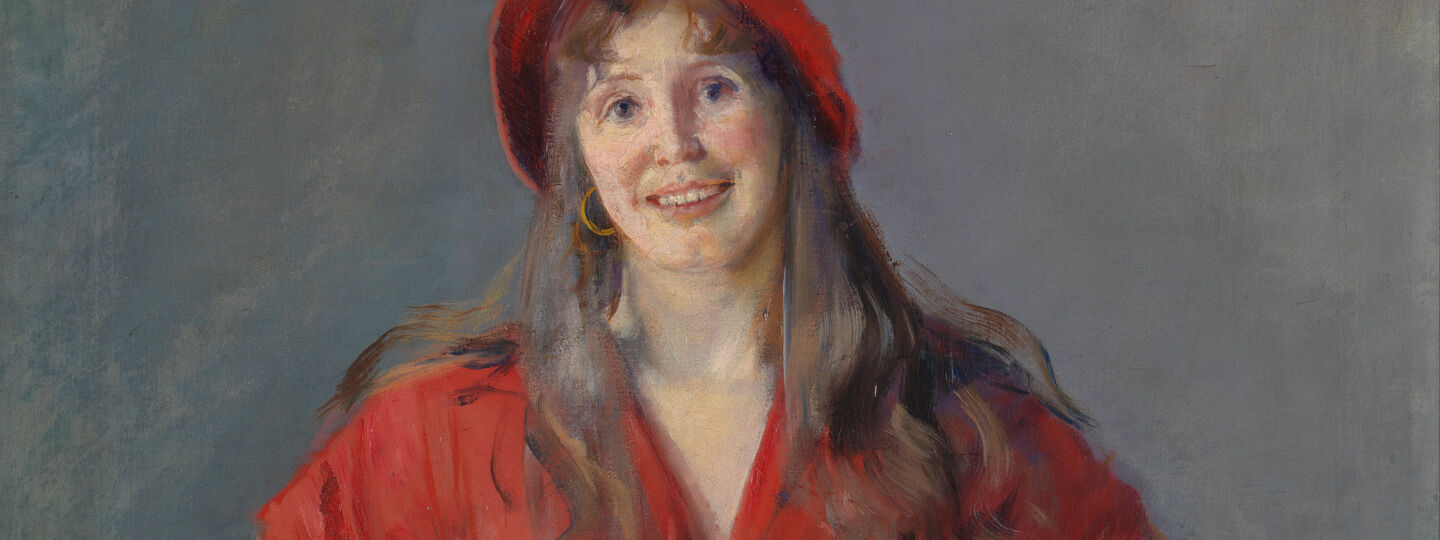
Info
Christian Krohg
1888
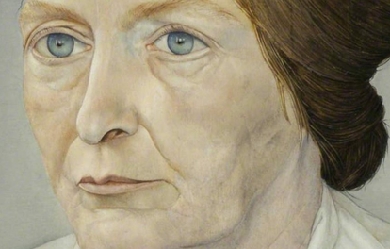
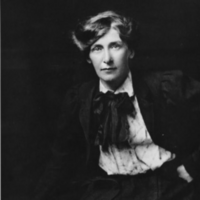
Cicely Mary Hamilton (née Hammill, 15 June 1872– 6 December 1952), was an English actress, writer, journalist, suffragist and feminist, part of the struggle for women’s suffrage in the United Kingdom. She is now best known for the play How the Vote was Won, which sees all of England’s female workers returning to their nearest male relative for financial support.. She is also credited as author of one of the most frequently performed suffrage plays, A Pageant of Great Women (1909), which first put Jane Austen on the stage as one of its “Learned Women.” Biography Cicely Mary Hammill was born in Paddington, London and educated in Malvern, Worcestershire. After a short spell in teaching she acted in a touring company. Then she wrote drama, including feminist themes, and enjoyed a period of success in the commercial theatre. In 1908 she and Bessie Hatton founded the Women Writers’ Suffrage League. This grew to around 400 members, including Ivy Compton-Burnett, Sarah Grand, Violet Hunt, Marie Belloc Lowndes, Alice Meynell, Olive Schreiner, Evelyn Sharp, May Sinclair and Margaret L. Woods. It produced campaigning literature, written by Sinclair amongst others, and recruited many prominent male supporters. Hamilton supplied the lyrics of “The March of the Women”, the song which Ethel Smyth composed in 1910 for the Women’s Social and Political Union. In the days before radio, one effective way to get a message out into society and to have it discussed was to produce short plays that could be performed around the country, and so suffrage drama was born. Elizabeth Robins’s Votes for Women and Cicely Hamilton and Christopher St. John’s How the Vote Was Won are two predominant examples of the genre. Hamilton also wrote A Pageant of Great Women, a highly successful women’s suffrage play based on the ideas of her friend, the theatre director Edith Craig. Hamilton played Woman while Craig played the painter Rosa Bonheur, one of the 50 or so great women in the play. It was produced all over the UK from 1909 until the First World War. Hamilton was a member of Craig’s theatre society, the Pioneer Players. Her play Jack and Jill and a Friend was one of the three plays in the Pioneer Players’ first production in May 1911. During World War I Hamilton initially worked in the organisation of nursing care, and then joined the army as an auxiliary. Later she formed a repertory company to entertain the troops. After the war, she wrote as a freelance journalist, particularly on birth control, and as a playwright for the Birmingham Repertory Company. In 1938 she was given a Civil List pension. Hamilton’s Theodore Savage (1922, vt. Lest Ye Die 1928) is a science-fiction novel about a Britain devastated by a war. In July 2017, the Finborough Theatre staged the first London production of Hamilton’s play 'Just to Get Married’ in over 100 years. It received positive reviews (4 stars) from The Times The Observer The Evening Standard and The New York Times The production was directed by Melissa Dunne and the cast included Tania Amsel, Nicola Blackman, Joanne Ferguson, Lauren Fitzpatrick, Jonny McPherson, Stuart Nunn, Philippa Quinn, Simon Rhodes and Joshua Riley.
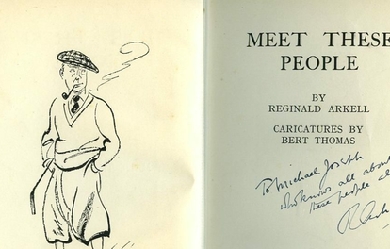
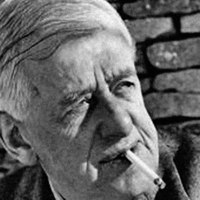
Reginald Arkell (1882–1959) was a British script writer and comic novelist who wrote many musical plays for the London theatre. The most popular of those was an adaptation of the spoof history book 1066 and All That: 1066—and all that: A Musical Comedy based on that Memorable History by Sellar and Yeatman. He was the author of A Cottage in the Country and the Green Fingers series of garden verse. Arkell was born on 14 October 1882 at Lechlade, Gloucestershire, England, was educated at Burford Grammar School and trained as a journalist. He married actress Elizabeth Evans in 1912. During the First World War he served with the King’s Own Yorkshire Light Infantry and The Norfolk Regiment. Arkell died on 1 May 1959 at Cricklade, England. Works * The Round House (1958) (novel) * Charley Moon (1953) (novel) Published by Michael Joseph Ltd. * “Trumpets Over Merriford” (1955), American title: The Miracle Of Merriford (1956) (novel) * Collected Green Fingers (1956) (poems) * Come to the ball; or, Harlequin (1951) (adaptation of Johann Strauss II’s Die Fledermaus) * Old Herbaceous (1950, republished 2002) * Green fingers Again (1942) (poems) * War Rumours (1939) (verse, illustrated by Edgar Norfield) * Percy Ponsonby (1939) (TV series) * 1066 And All That (1939) (TV version) * The Street Singer or Interval for Romance (1937) (film musical which starred Arthur Tracy) * Smash and Grab (1937) (film) * Green fingers, and other poems (1934) (includes Roses at Owlpen) * The Last Waltz (1936) (film of the musical comedy) * 1066 And All That (1935) (revue) * A Kingdom for a Cow (1935) (adaptation of Kurt Weill’s operetta Der Kuhhandel) * Playing the Games (1935) (humour) * Bridge Without Sighs (1934) (A Harmless Handbook to the game, written in rhyme) * Richard Jefferies (1933) (biography) * Winter Sportings (1929) * Meet These People (1928) - Poetry with caricatures by Bert Thomas. Published by Herbert Jenkins. * Columbine– A Fantasy of Summertime (1928) (adaptation for radio) * The Blue Train (1927) (musical, music by Robert Stolz, additional lyrics by Ivy St. Helier) * Frasquita (1925) (operetta, music by Franz Lehár) * Our Nell (1924) (musical play, music by Ivor Novello and Harold Fraser-Simson) * The tragedy of Mr. Punch (1923) (play) * Columbine (1922) (play) * Catherine (1922) (musical play, music by Tchaikovsky) * The Last Waltz (1922) (musical comedy, music by Oscar Straus) * All the Rumors (1916) (contains the poem Actual Evidence I Have None... Published by Duckworth & Company, 1916 - World War, 1914-1918 - 47 pages) * The Holidays (Children’s poem in The Captain Dec 1910) Old Herbaceous * Old Herbaceous is a classic British novel of the garden, with a title character as outsized and unforgettable as P. G. Wodehouse’s immortal manservant, Jeeves. Born at the dusk of the Victorian era, Bert Pinnegar, an awkward orphan child with one leg a tad longer than the other, rises from inauspicious schoolboy days spent picking wildflowers and dodging angry farmers to become the legendary head gardener “Old Herbaceous,” the most esteemed flower-show judge in the county and a famed horticultural wizard capable of producing dazzling April strawberries from the greenhouse and the exact morning glories his Lady spies on the French Riviera, “so blue, so blue it positively hurts.” * Sprinkled with nuggets of gardening wisdom, Old Herbaceous is a witty comic portrait of the most archetypal—and crotchety—head gardener ever to plant a row of bulbs at a British country house. External links * Works by Reginald Arkell at Faded Page (Canada) * BBC page on Percy Ponsonby * Reginald Arkell on Internet Movie Database References Wikipedia—https://en.wikipedia.org/wiki/Reginald_Arkell
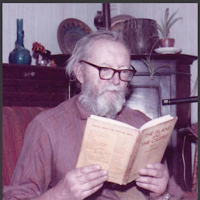
Nicholas Moore (16 November 1918 – 26 January 1986) was an English poet, associated with the New Apocalyptics in the 1940s, whose reputation stood as high as Dylan Thomas’s. He later dropped out of the literary world. Moore was born in Cambridge, England, the elder child of the philosopher G. E. Moore and Dorothy Ely. His paternal uncle was the poet, artist and critic Thomas Sturge Moore, and his brother was the composer Timothy Moore (1922-2003). He was educated at the Dragon School in Oxford, Leighton Park School in Reading, the University of St Andrews in Scotland, and Trinity College in Cambridge. Moore was editor and co-founder of a literary review, Seven (1938–40), while still an undergraduate. Seven, Magazine of People's Writing, had a complex later history: Moore edited it with John Goodland; it later appeared edited by Gordon Cruikshank, and then by Sydney D. Tremayne, after Randall Swingler bought it in 1941 from Philip O'Connor. While in Cambridge Moore became closely involved with literary London, in particular Tambimuttu. He published pamphlets under the Poetry London imprint in 1941 (of George Scurfield, G. S. Fraser, Anne Ridler and his own work). This led to Moore becoming Tambimuttu's assistant. Moore later worked for the Grey Walls Press. The Glass Tower, a selected poems collection from 1944, appeared with illustrations by the young Lucian Freud. In 1945 he edited The PL Book of Modern American Short Stories, and won Contemporary Poetry's Patron Prize (judged that year by W. H. Auden) for Girl with a Wine Glass. In 1947 he won the Harriet Monroe Memorial Prize for Girls and Birds and various other poems. Later Moore encountered difficulty in publishing; he was in the unusual position for a British poet of having a higher reputation in the USA. His association with the "romantics" of the 1940s was, in fact, rather an inaccurate reflection of his style. In the 1950s he worked as a horticulturist, writing a book The Tall Bearded Iris (1956). In 1968 he entered 31 separate pseudonymous translations of a single Baudelaire poem, in a competition for the Sunday Times, run by George Steiner. Each translation focused on a different element of the poem: rhyme, pattern, tropes, symbolism, etc. producing vastly different results, to illustrate the inadequacies and lacunae produced in translation. This work was published in 1973 as Spleen; it is also available online. Longings of the Acrobats, a selected poems volume, was edited by Peter Riley and published in 1990 by Carcanet Press. An interview with Riley concerning Moore's rediscovery and later years appears as a documentary element within the "Guilty River" chapter of Iain Sinclair's novel Downriver. According to Riley, Moore was extremely prolific and left behind many unpublished poems. An example of one of Moore's "pomenvylopes" – idiosyncratic documents consisting of poems and comments typed onto envelopes and posted to friends and acquaintances – appears online at The Fortnightly Review. His Selected Poems was published by Shoestring Press in 2014. Bibliography * A Wish in Season (1941) * The Island and the Cattle (1941) * A Book for Priscilla (1941) * Buzzing around with a Bee (1941) * The Cabaret, the Dancer, the Gentlemen (1942) * The Glass Tower (1944) * Thirty-Five Anonymous Odes (published anonymously, 1944) * The War of the Little Jersey Cows (published under the pseudonym "Guy Kelly", 1945) * The Anonymous Elegies and other poems (published anonymously, 1945) * Recollections of the Gala: Selected Poems 1943-48 (1950) * The Tall Bearded Iris (1956) * Anxious To Please (1968) (published under the pseudonym (anagram) "Romeo Anschilo", 1995 by Oasis Books) * Identity (1969) * Resolution and Identity (1970) * Spleen (1973) * Lacrimae Rerum (1988) * Longings of the Acrobats: Selected Poems (1990) * The Orange Bed (2011) References Wikipedia—http://en.wikipedia.org/wiki/Nicholas_Moore

